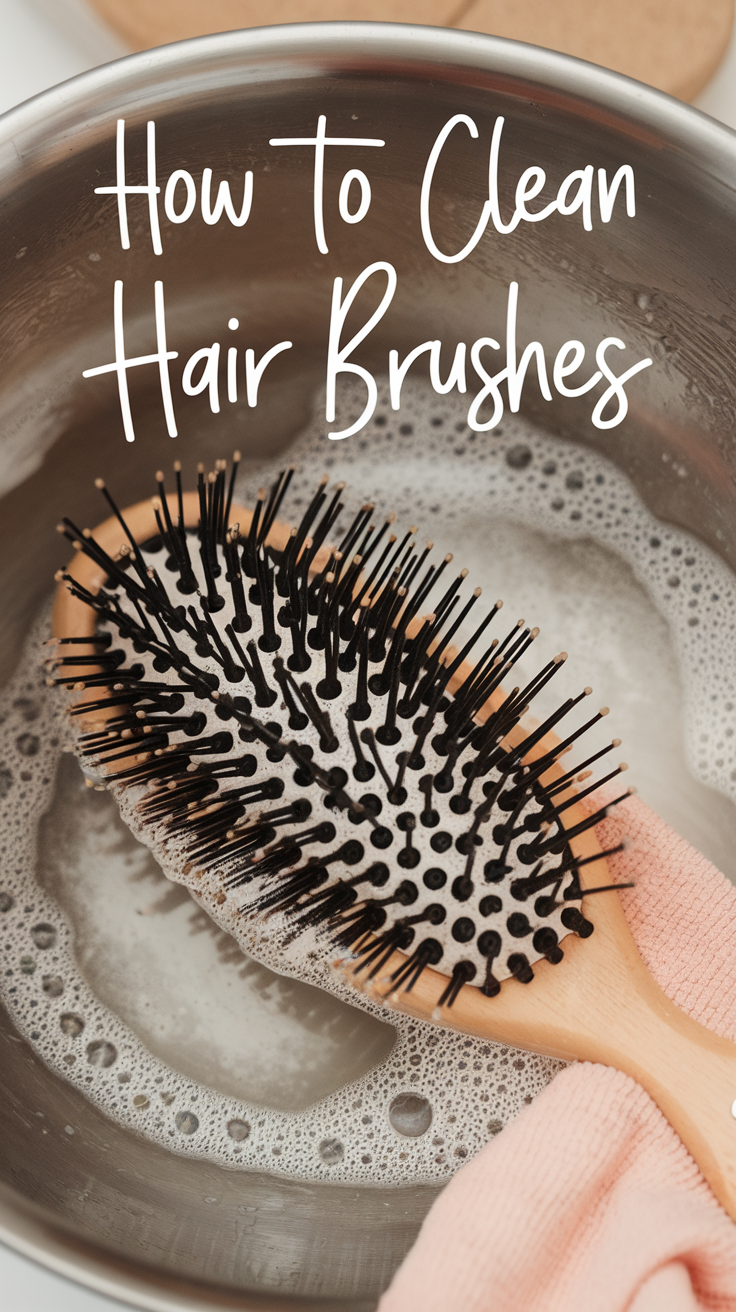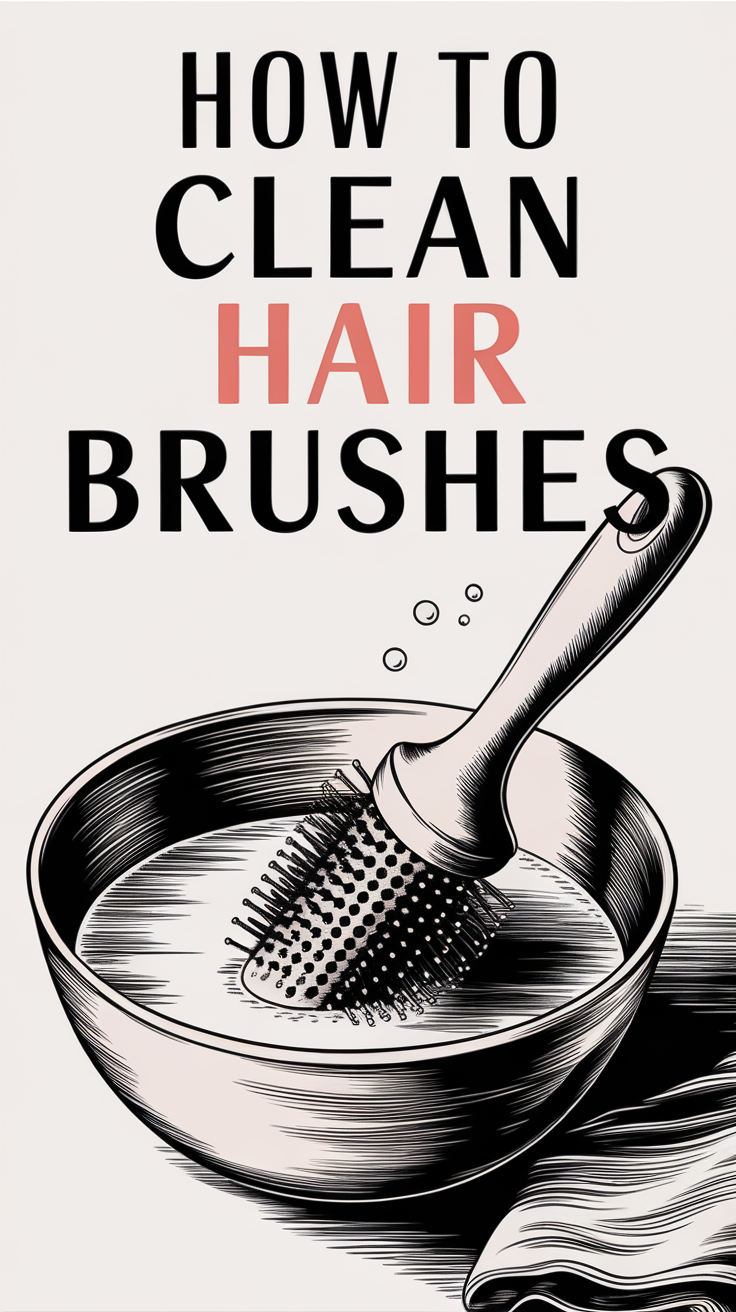How to Clean Hair Brushes: A Complete Guide
Maintaining clean hair brushes is essential for keeping your hair and scalp healthy. Over time, brushes collect hair, oils, and product residue, which can transfer back to your locks. When I first struggled with hair brushes looking grimy, I realized it was time for a deep clean. Let me share how to clean your brushes thoroughly and efficiently.
Why Cleaning Your Hair Brush Is Essential
A dirty brush can impact both your hair and scalp negatively. Here’s why regular cleaning matters:
- Removes buildup: Brushes accumulate oils, dead skin cells, and product residue, making them less effective.
- Prevents bacteria: Unclean brushes can harbor bacteria and fungi, leading to scalp irritation.
- Improves brush performance: Clean bristles glide through hair, minimizing breakage and snagging.
- Extends lifespan: A well-maintained brush lasts longer, saving you money.
How Often Should You Clean Your Hair Brush?
The frequency depends on your hair type and usage:
| Hair Type/Usage | Cleaning Frequency |
|---|---|
| Heavy product users | Weekly |
| Oily hair or scalp | Weekly |
| Dry or normal hair | Bi-weekly |
| Minimal product usage | Monthly |
Pro Tip: Remove hair from the brush daily to keep it fresh.
Step-by-Step Guide to Cleaning Hair Brushes
Step 1: Remove Hair from the Brush
Using your fingers or a comb, gently remove any trapped hair. For stubborn tangles, use scissors to cut through knots.
Step 2: Prepare a Cleaning Solution
Choose the right cleaning solution for your brush type:
- Plastic brushes: Mix warm water with shampoo or dish soap.
- Natural bristles: Opt for a mild shampoo to avoid damage.
- Heavy buildup: Add 1–2 teaspoons of baking soda for extra cleaning power.
| Solution | Ingredients |
|---|---|
| Standard cleaning | Warm water + gentle shampoo |
| Eco-friendly cleaning | Warm water + vinegar (1:1 ratio) + baking soda |
 Step 3: Soak the Brush
Step 3: Soak the Brush
- Plastic or synthetic brushes: Fully submerge for 5–10 minutes.
- Wooden or cushioned brushes: Dip only the bristles to avoid damage.
Step 4: Scrub the Bristles
Use an old toothbrush dipped in the solution to clean bristles and the base. For stubborn residue, sprinkle baking soda directly onto the brush before scrubbing.
Step 5: Rinse Thoroughly
Rinse the brush under cool running water to remove all soap and residue. For delicate brushes, wipe with a damp cloth instead of rinsing.
Step 6: Dry Properly
Shake off excess water and place the brush bristle-side down on a clean towel. Let it air dry in a well-ventilated space to prevent mold.
Caring for Different Brush Types
| Brush Type | Special Care Instructions |
|---|---|
| Natural bristle | Avoid soaking; clean gently with mild shampoo. |
| Synthetic | Can handle more rigorous cleaning and soaking. |
| Wooden handles | Wipe the handle with a damp cloth; avoid submerging. |
| Cushioned brushes | Submerge only the bristles, keeping the cushion dry. |
Eco-Friendly Cleaning Tips
If you want to clean sustainably, try these eco-friendly methods:
- Use natural cleaners like vinegar or baking soda.
- Avoid harsh chemicals to reduce environmental impact.
- Add a few drops of essential oils for a pleasant scent and natural antibacterial properties.
FAQs
1. How often should I replace my hair brush?
Replace your brush every 6–12 months, or sooner if bristles are damaged.
2. Can I use vinegar to clean my brush?
Yes! A mix of vinegar and warm water is effective for removing heavy buildup.
3. How do I handle brushes with delicate bristles?
Clean gently with a toothbrush and mild shampoo. Avoid soaking delicate brushes.
4. What tools can help clean my brush?
Use tools like brush cleaners, tweezers, or small combs designed to remove trapped hair and debris.
5. Can a dirty brush affect my scalp?
Absolutely. Unclean brushes can transfer oils, bacteria, and residue to your scalp, causing irritation.
Conclusion
Cleaning your hair brush may seem like a small task, but it has a big impact on your hair’s health and appearance. Regular maintenance removes buildup, prevents bacteria, and extends your brush’s lifespan. By following these steps, you’ll enjoy smoother, cleaner hair care.
Take a moment today to clean your brush—it’s worth the effort!



